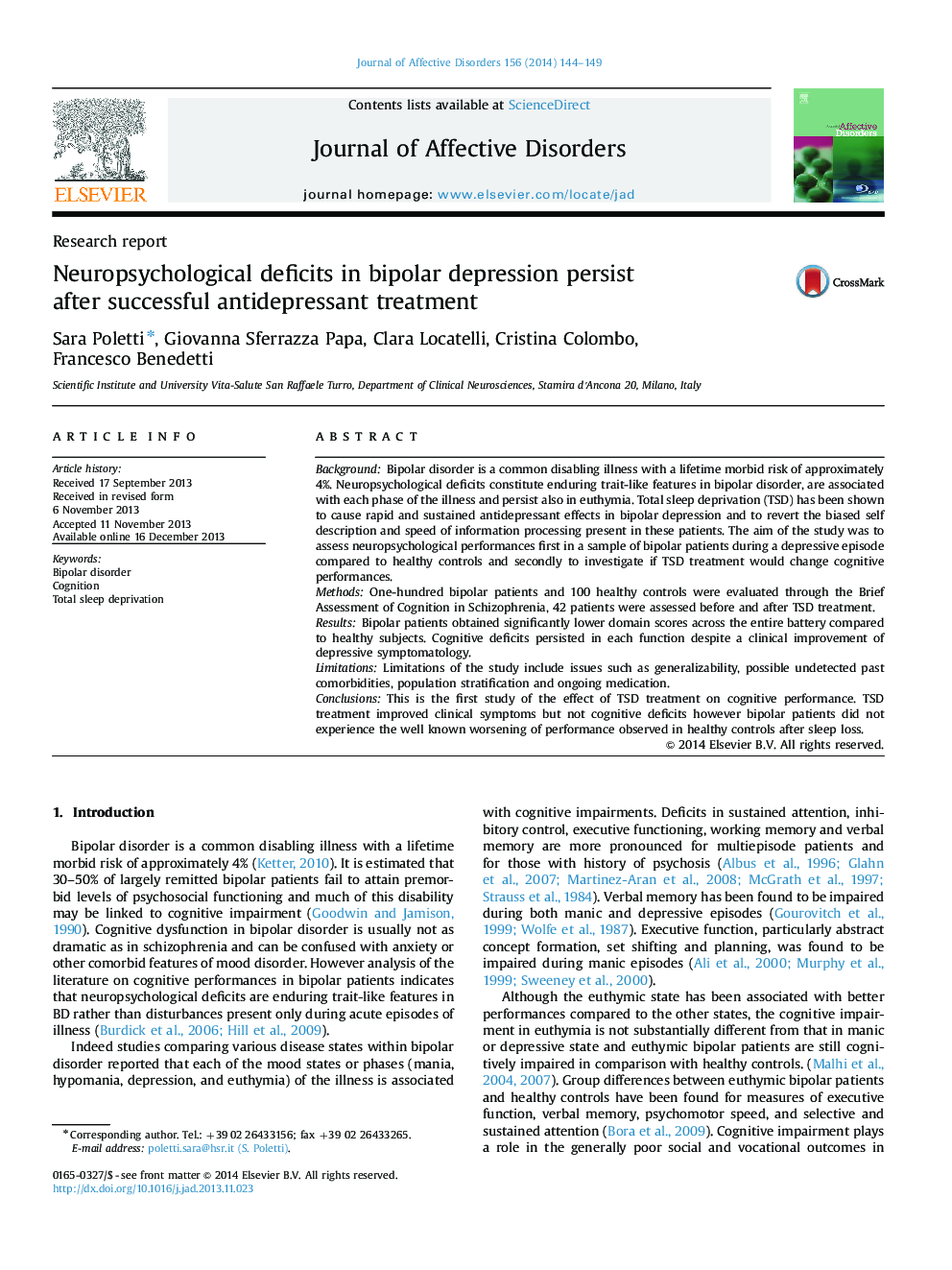| Article ID | Journal | Published Year | Pages | File Type |
|---|---|---|---|---|
| 6233826 | Journal of Affective Disorders | 2014 | 6 Pages |
BackgroundBipolar disorder is a common disabling illness with a lifetime morbid risk of approximately 4%. Neuropsychological deficits constitute enduring trait-like features in bipolar disorder, are associated with each phase of the illness and persist also in euthymia. Total sleep deprivation (TSD) has been shown to cause rapid and sustained antidepressant effects in bipolar depression and to revert the biased self description and speed of information processing present in these patients. The aim of the study was to assess neuropsychological performances first in a sample of bipolar patients during a depressive episode compared to healthy controls and secondly to investigate if TSD treatment would change cognitive performances.MethodsOne-hundred bipolar patients and 100 healthy controls were evaluated through the Brief Assessment of Cognition in Schizophrenia, 42 patients were assessed before and after TSD treatment.ResultsBipolar patients obtained significantly lower domain scores across the entire battery compared to healthy subjects. Cognitive deficits persisted in each function despite a clinical improvement of depressive symptomatology.LimitationsLimitations of the study include issues such as generalizability, possible undetected past comorbidities, population stratification and ongoing medication.ConclusionsThis is the first study of the effect of TSD treatment on cognitive performance. TSD treatment improved clinical symptoms but not cognitive deficits however bipolar patients did not experience the well known worsening of performance observed in healthy controls after sleep loss.
